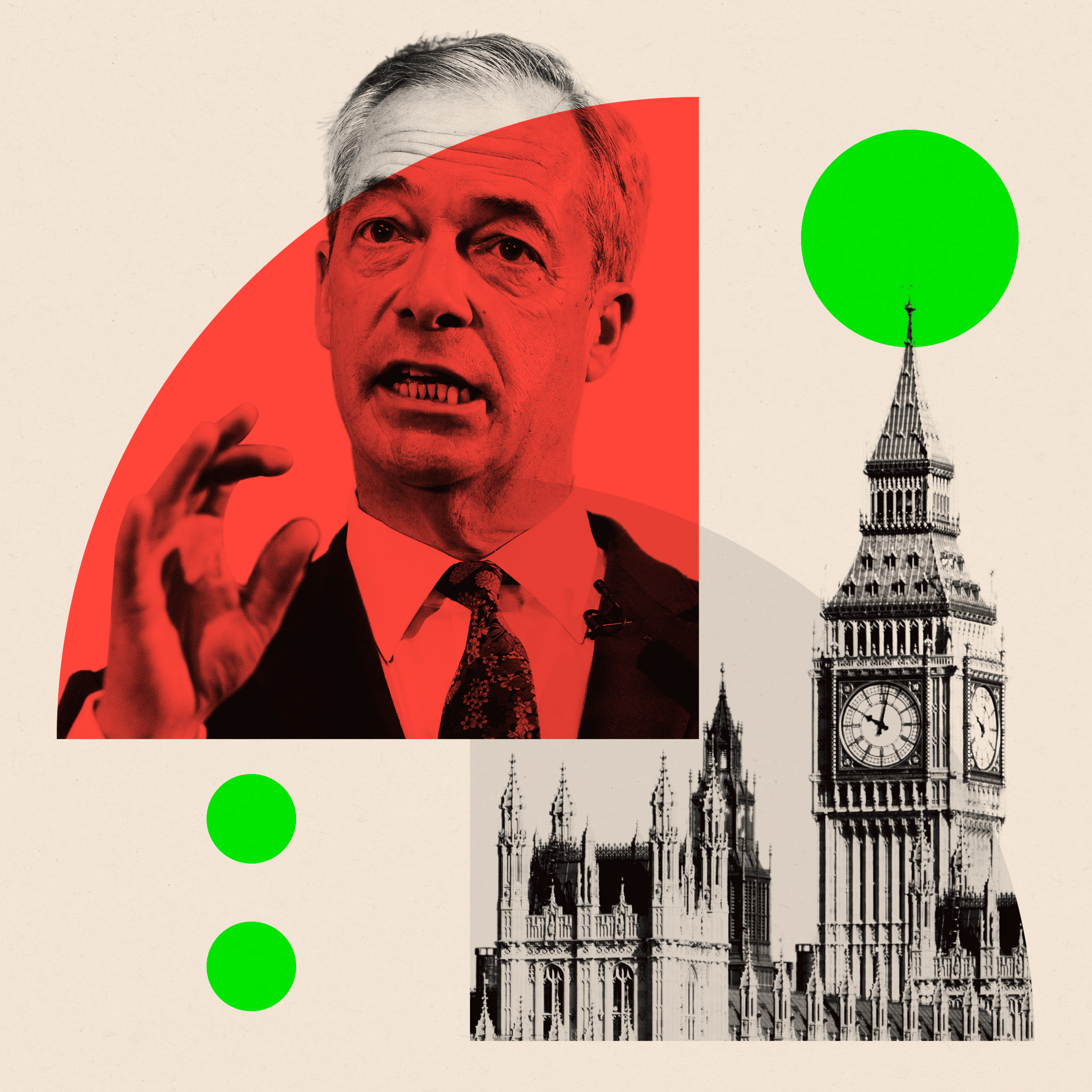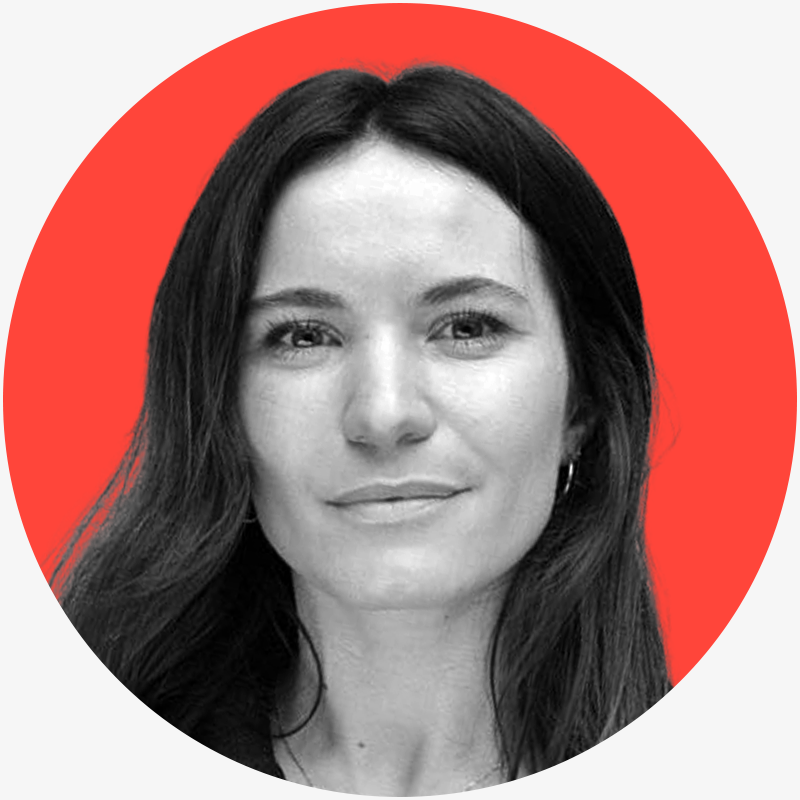
At the Conservative Party conference in Manchester last year, I saw a long queue, snaking up and down stairs, around corners, and corridors. It was for a rally where Nigel Farage had offered to make a guest appearance alongside former PM Liz Truss.
Nigel Farage was there in his capacity as a GB News presenter, but he was often stopped and asked for selfies. He also went viral for singing Can’t Take My Eyes Off You at a conference bash.
And he spent some time fielding questions from journalists about whether he was pondering a run as a Conservative MP. Some wondered openly whether one day he'd try to run for leader.
He batted it away, but he later told the BBC that while he wouldn't join the Conservative Party in its current form, he would "never say never" and if after the next election they "reset and re-align, then I might”.
Nigel Farage announced as Reform UK leader and Clacton MP candidate
Nigel Farage’s announcement on Monday to run as a candidate for Reform UK in this general election is a move that has the capacity to both reset and re-align the Conservative Party.
Despite having stood to be an MP unsuccessfully seven times, he is more of a household name than some Conservative ministers. Many Conservative campaigners and strategists feared him standing for Reform UK, worried that he might split the vote in some seats that the Conservatives are trying to hold on to - or even ones where they’ve previously enjoyed a pretty safe majority.
While they won't admit it publicly, some in the Labour camp are privately delighted at the news of his campaign for exactly this reason.
This is the first way Mr Farage has the potential to "reset" the Conservative party - by potentially denying it seats.
A poll that was published just minutes after Mr Farage announced his candidacy (and so were carried out some time before), suggests that Reform UK are not currently on course to win any seats, external. Of course this is just one poll, the usual caveats apply, other polls may vary.
But even if they don't win seats, if the right-wing vote is splintered in some constituencies, especially those that are more marginal, that could spell quite severe trouble for the Conservative party.
What comes after
That matters because when parties suffer a very large defeat, as Labour experienced in 2019 for example, it can often be a moment of reckoning - a point of reflection about whether the party needs a total handbrake turn of direction, purpose - and, usually, of leader.
Secondly, by becoming leader of Reform UK, he likely feels that he has the capacity to "re-align" the Conservative party in policy terms too. And, again, he wouldn't necessarily need to win seats to do so - the threat alone might be enough.
Arguably, by worrying Conservatives afraid of losing their seats, Reform UK has the capacity to influence Conservative policy even if it currently doesn't have any seats.
Whether it has been rhetoric about being tougher on migration, or announcements on national service or pensions, the Conservative Party have already put out a number of policies which seem targeted at stopping some of their so-called “core” vote - those who traditionally skew more right-wing and are perhaps an older demographic - from switching.
Farage to run as Reform UK candidate in Clacton
- Published4 June 2024
What election issues really matter to you? Let us know
- Published3 June 2024
Election poll tracker: How do the parties compare?
- Published3 July 2024
The test for Nigel Farage on a personal level will be whether this election is finally the time that he gains influence from within parliament itself, or whether he must continue to shape it from the outside.
He clearly feels he has a shot at becoming an MP. Clacton is a seat that voted heavily to leave the EU. Its former MP Douglas Carswell defected to UKIP in 2014, when Nigel Farage was party leader. Mr Farage's Brexit Party did not field a candidate there in 2019 as part of an election strategy to not split the Brexit-supporting vote, allowing the Conservatives to win a safe majority there.
Winning a seat will still be a challenge.
He used his speech on Monday to argue the election result is already a foregone conclusion and that he believes Labour will win. He sees this now as a race to shape the opposition in the next parliament, and he clearly intends to shape the future of the Conservative party in the UK.
As a member, or even leader one day? As ever with Nigel Farage, you can't really ever rule anything out. As he made clear in his speech, he's not afraid of changing his mind.
The other candidates announced as standing in Clacton so far are:
Giles Watling, Conservative Party
Jovan Owusu-Nepaul, Labour Party
Matthew Bensilum, Liberal Democrats
Natasha Osben, Green Party
A full list will be published on the BBC News website after nominations close on Friday
More from InDepth
Labour's long war inflicts Starmer's first campaign stumble
- Published1 June 2024
How it went wrong for Project Sunak
- Published15 May 2024
Prince William's role is changing - what does he really want to do with it?
- Published2 June 2024
BBC InDepth is the new home on the website and app for the best analysis and expertise from our top journalists. Under a distinctive new brand, we’ll bring you fresh perspectives that challenge assumptions, and deep reporting on the biggest issues to help you make sense of a complex world. And we’ll be showcasing thought-provoking content from across BBC Sounds and iPlayer too. We’re starting small but thinking big, and we want to know what you think - you can send us your feedback by clicking on the button below.
Get in touch
InDepth is the home for the best analysis from across BBC News. Tell us what you think.

